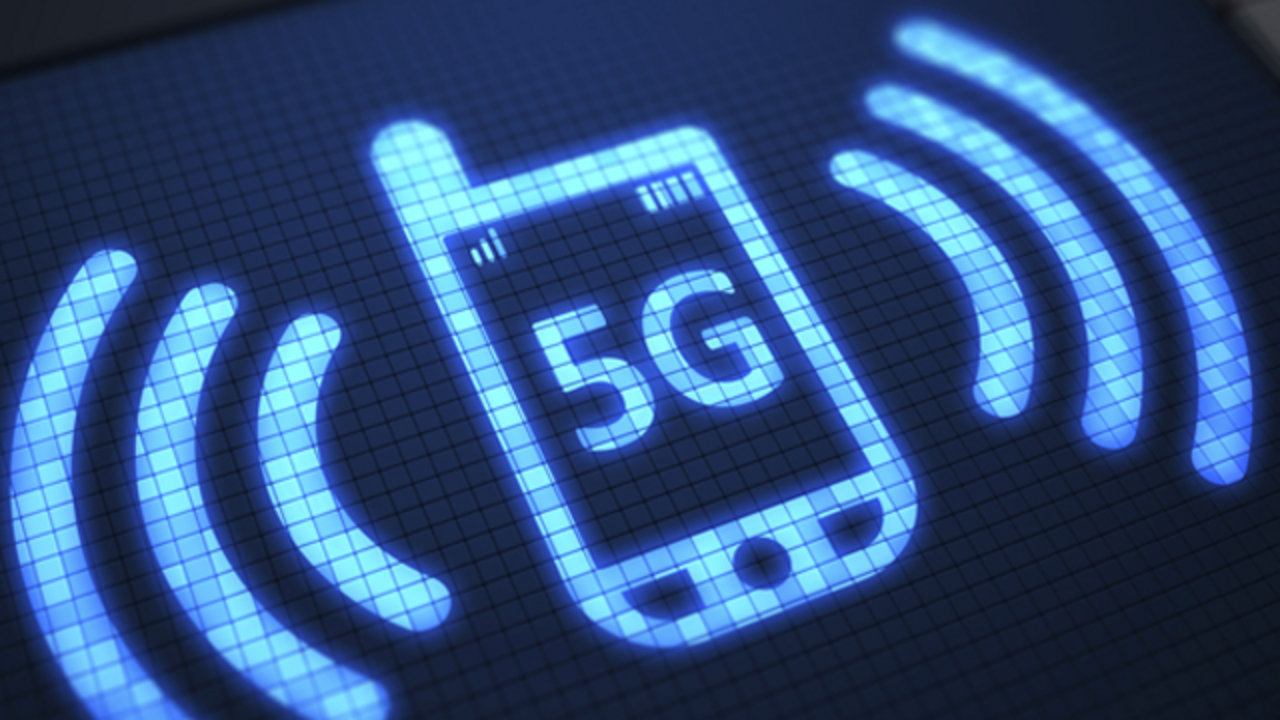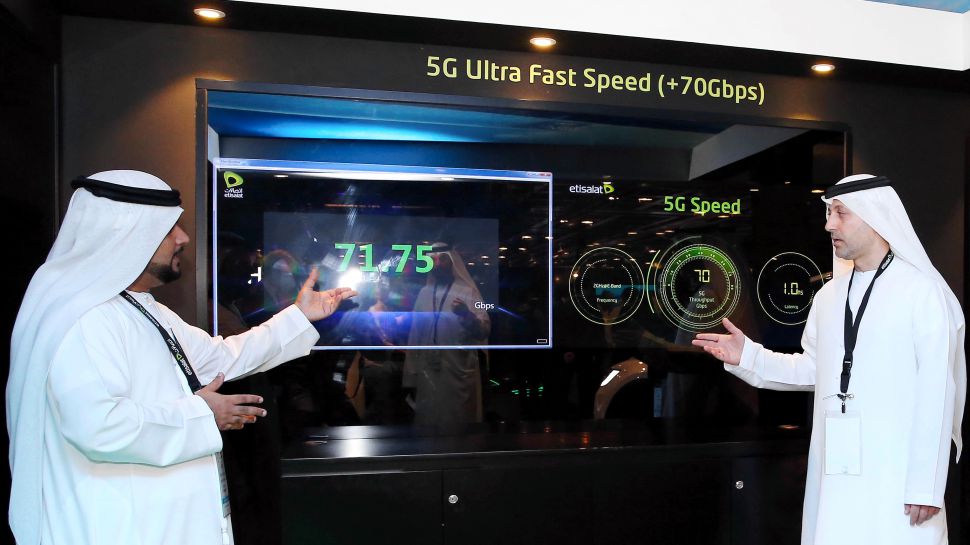How 5G will make our streaming dreams come true
Zero buffering, no waiting. Will 5G lead the way?

As mobile phones have become more advanced we've seen the content we consume on them evolve as well; not so long ago we were blown away by the fact that we could share images on our handsets or listen to music, but now your average smartphone is used for streaming HD video, consuming entire albums and providing an online experience which is close to that which you'd get on a desktop computer.
The game has changed, and with it, we've seen a wide array of network standards pop up over the years, such as GPRS, 3G and, most recently, 4G. Despite the rapid development of technology, we're still at a point where the average mobile network struggles to satisfy our data needs, and many people living in rural areas still don't have reliable 4G or even 3G coverage.
Given these points, how far away are we from the dream of an always-on connection which delivers the kind of speed we need for HD – or even 4K – movie streaming, no matter where we are? Can we ever really get to the point where Wi-Fi speeds are possible when we leave the comfort of our homes?
Where we are now
"For millions of consumers across large parts of the UK, that is already a reality," counters BT Managing Director and Chief Architect Neil McRae. "With latency sub-50ms and average speeds of 30Mbps – with peak speeds as high as 400Mbps – many consumers have a great mobile video experience already. Where I am right now, my smartphone is able to download at well over 100Mb/sec, so for watching TV or video, it's perfect with no buffering."
McRae concedes that this situation isn't the same for many mobile users in the UK, but adds that companies like BT are expanding their network coverage all the time to get rid of 'notspots' and bring better reception to more people – and that's the first step in achieving the dream of always-on mobile internet.

"There are still blackspots, but we’re removing them every single day with brand new sites or new frequencies that reach further," he says. "Today, we cover 91% of the UK’s geography with 4G – that’s 15 points – or more than 35,000 square kilometres – more than the 3G network. We have built more than 300 new sites in 2018, and in 2017 we added 10% to our landmass coverage, which doesn’t sound a lot until you realize that’s the equivalent of a space larger than Wales."
McRae admits that network providers naturally focus on areas that are densely populated, but the aim is to remove all 'notspots' as soon as possible so that everyone has at least a connection, and that then paves the way for advanced technology like 5G.
Sign up for breaking news, reviews, opinion, top tech deals, and more.
The 5G revolution
5G is, in McRae's opinion, something of a game-changer when it comes to fulfilling the vision of high-speed data access wherever you are in the UK. "Using the network at large, densely crowded locations such as stadiums, concerts, train stations and airports will improve because of 5G technology," he says. "Whilst 4G has helped in these areas, the technology can struggle to cope with both the required bandwidth and the volume of devices making requests. 5G helps us solve that.
"The radio interface has been redesigned to reduce latency and enable prioritization of traffic to keep latency low. The core network, building on 4G Long Term Evolution, is moving to an architecture much more like the fixed broadband network, with a lot more of the core capabilities distributed closer to the network user."

"Latency is, in effect, the responsiveness of the network; how quickly it can get a response from the internet. A few milliseconds can be vital in many industrial, healthcare, or automotive applications. And, for consumers, it will enable mobile multiplayer gaming, and it will be the difference between VR and AR experiences we have today and those that in future will be indistinguishable from reality; a Turing Test for mobile experiences.
"Finally, 5G enables much higher throughput – that is the bandwidth available to each connection, and the speed at which data is sent or delivered. The average speed on our 4G network today is 30Mbps, and 5G can increase that even further. With higher bandwidth comes higher resolution video."
VR everywhere
All of these things mean that when it comes to consuming media on the go, 5G will revolutionize everything. "We'll have more devices to consume on with higher-quality video," explains McRae. "And mixed reality – AR and VR – experiences becoming the norm. Five years ago, Facebook and Twitter were mostly populated with static images, and Netflix and YouTube were only really usable on Wi-Fi. 4G has changed that. Now, video is the norm in social media, and Netflix continually shows the greatest data growth of any service on our mobile network.
"In the years to come, as 5G networks become prevalent and a high speed, low latency connection is widely available for consumers, brands will create immersive, mixed reality experiences as a matter of course. And with the internet of things and more connected personal devices, there will be a digital overlay to our real-world environments, with infinite possibilities for media interactions."

It's not just pre-recorded media that will harness the power of 5G; McRae thinks the arrival of the next-generation mobile network will alter the way in which we watch live events, such as sports and music concerts. "Perhaps you’re at Silverstone watching the MotoGP," he explains. "With 5G, it will be possible to provide high-quality, real-time updates to fans with companion applications, plugging you directly into the action on the track, all around the track.
"I also believe 5G will usher in a much more converged approach to services, and much more social interaction will be possible – so if you are at a football match and you know your friends are watching at home, it will be possible to socially link what’s going on in the stadium to what’s going on with your friends."
An always-on future
That's all well and good, but another headache mobile users have when they stray from their precious Wi-Fi hub is the data allowance of their phone contract; being able to consume more media on the go – especially 4K video – isn't going to be feasible, at least not on current mobile deals. McRae admits this is an issue, but the industry is changing, and by the time 5G is adopted fully, contract limits will have expanded to cater for the increased data consumption.
"My vision for 5G is that smartphone users don’t know – or need to know – how they are connecting, just that the experience is consistently brilliant."
"The plans we’re selling today go up to 100GB, so we’re enabling customers to enjoy as much mobile video as they want. As we’ve improved network capability, and apps and services have become more data-intensive, and customers have shown that they want to watch video on mobile, we’ve grown the data plans that we offer. It’s changing, and it will continue to change. 5G will go a long way to improve the economics of the network, but it will always be important to ensure we are able to invest in the network to add coverage, capacity and new capabilities."
Ultimately, McRae feels that 5G will remove the impression that leaving the house – and your Wi-Fi connection – means lower speeds, loss of connectivity and a slower experience, so the dream of an always-on connection might be closer than you think. "My vision for 5G is that smartphone users don’t know – or need to know – how they are connecting, just that the experience is consistently brilliant; the perception of infinite capacity, no matter where they are or what they’re doing. If we get this right, and I’m confident we will, then in theory we shouldn’t need a 6G."
TechRadar's Next Up series is brought to you in association with Honor
